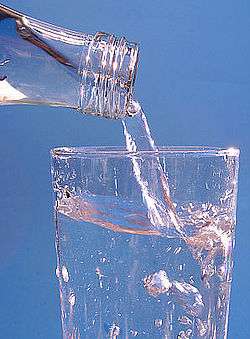Definify.com
Webster 1913 Edition
Ae
Æ
orAe
A diphthong in the Latin language; used also by the Saxon writers. It corresponds to the Gr.
αι
. The Anglo-Saxon short æ was generally replaced by a, the long ǣ by e or ee. In derivatives from Latin words with ae, it is mostly superseded by e. For most words found with this initial combination, the reader will therefore search under the letter E. Webster 1828 Edition
Ae
AE
, a diphthong in the Latin language; used also by the Saxon writers. In derivatives from the learned languages, it is mostly superseded by e, and convenience seems to require it to be wholly rejected in anglicized words. For such words as may be found with this initial combination, the reader will therefore search under the letter E.Definition 2026
ae
ae
See also: Appendix:Variations of "ae"
English
Adjective
ae (not comparable)
(Can we add an example for this sense?)
Etymology 2
Variant form of æ.
Pronunciation
Symbol
ae
- Variant of æ.
See also
References
- “ae” in The American Heritage Dictionary of the English Language, Fourth Edition, Houghton Mifflin Company, 2000.
- “ae” in Dictionary.com Unabridged, v1.0.1, Lexico Publishing Group, 2006.
Anagrams
Danish
Pronunciation
- IPA(key): /aːə/, [ˈæːæ]
Verb
ae (imperative a, infinitive at ae, present tense aer, past tense aede, perfect tense har aet)
Ende

wai
Etymology
From Proto-Central Malayo-Polynesian *waiʀ, from Proto-Central-Eastern Malayo-Polynesian *waiʀ, from Proto-Malayo-Polynesian *wahiʀ.
Noun
ae
- water (clear liquid H₂O)
Irish
Pronunciation
- IPA(key): [eː]
Etymology 1
From Middle Irish áe (“liver”), from Old Irish óa.
Noun
ae m (genitive singular ae, nominative plural aenna)
Declension
Declension of ae
- Alternative plural: aebha
- Alternative genitive plural: ae (in certain phrases)
Derived terms
- domlas ae (“bile”)
- puchán ae (“fluke”)
- aelus m (“liverwort”)
Etymology 2
Noun
ae m (genitive singular ae)
- Alternative form of aoi (“metrical composition”)
Declension
Declension of ae
Fourth declension
|
Bare forms (no plural of this noun)
|
Forms with the definite article
|
Mutation
| Irish mutation | |||
|---|---|---|---|
| Radical | Eclipsis | with h-prothesis | with t-prothesis |
| ae | n-ae | hae | t-ae |
| Note: Some of these forms may be hypothetical. Not every possible mutated form of every word actually occurs. | |||
References
- "ae" in Foclóir Gaeilge-Béarla, An Gúm, 1977, by Niall Ó Dónaill.
- “1 áe ("liver")” in Dictionary of the Irish Language, Royal Irish Academy, 1913–76.
Latin
Participle
ae
- nominative feminine plural of us
- genitive feminine singular of us
- dative feminine singular of us
- vocative feminine plural of us
References
- ae in Charlton T. Lewis and Charles Short (1879) A Latin Dictionary, Oxford: Clarendon Press
- AE in Charles du Fresne du Cange’s Glossarium Mediæ et Infimæ Latinitatis (augmented edition, 1883–1887)
Middle Welsh
Pronunciation
- IPA(key): /aɨ̯/
Conjunction
ae ... ae
- either ... or
- Pwyll Pendeuic Dyuet:
- Sef kyfryw chware a wneynt, taraw a wnai pob un dyrnawt ar y got, ae a’e droet ae a throssawl;
- In this manner they played the game, each of them striking the bag, either with his foot or with a staff.
- Sef kyfryw chware a wneynt, taraw a wnai pob un dyrnawt ar y got, ae a’e droet ae a throssawl;
- Pwyll Pendeuic Dyuet:
Descendants
- Welsh: ai
Scots
Etymology
From Scottish Middle English a-, from Old English ān (“one”); see also a.
Pronunciation
IPA(key): /e/
Adjective
ae (not comparable)